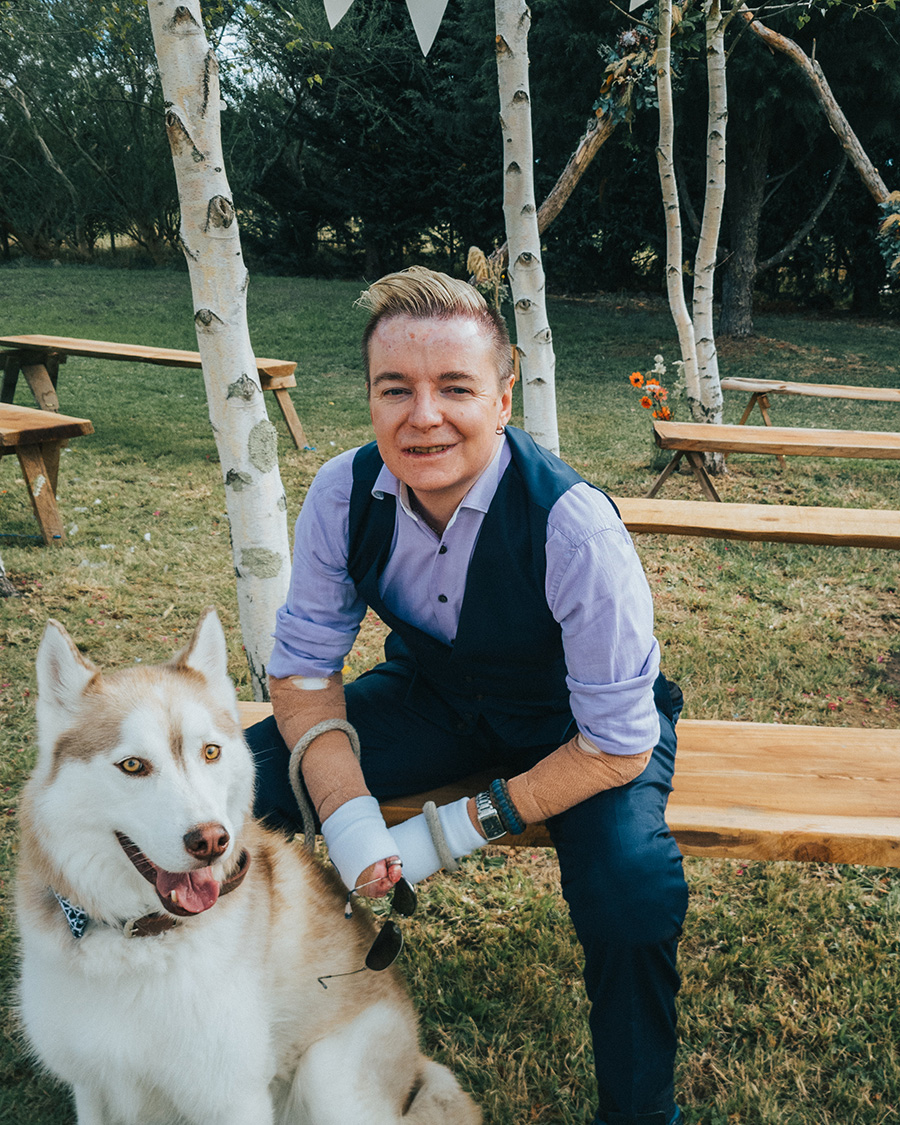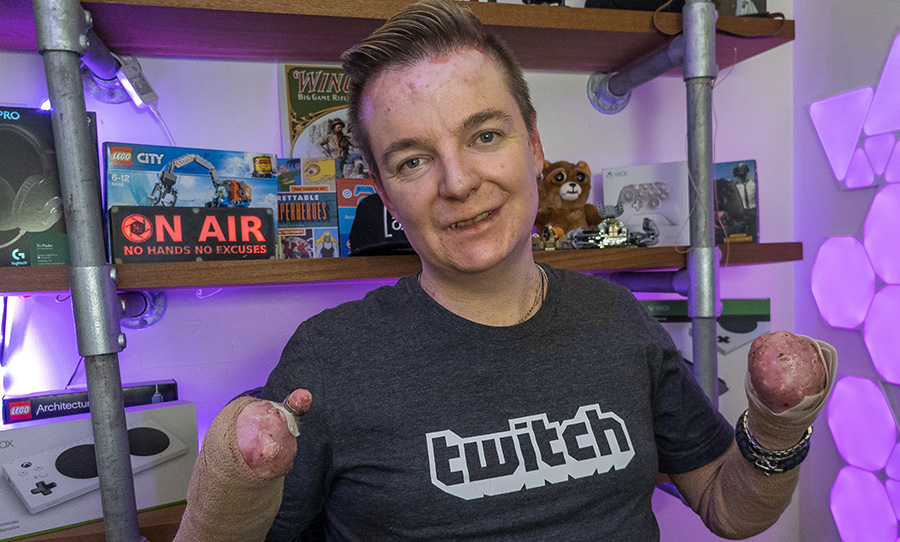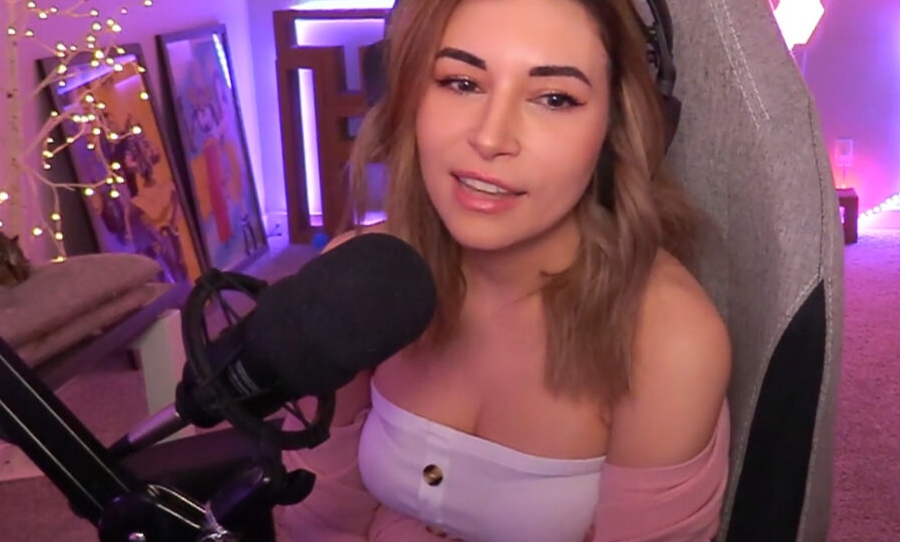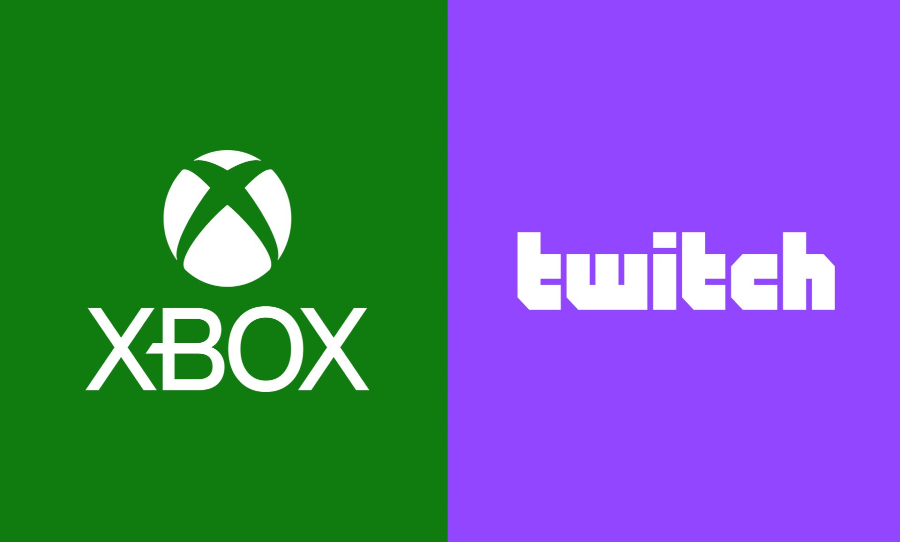Humphrey ‘NoHandsNZ’ Hanley has carved his own path on Twitch, platforming a need for greater accessibility in the video game industry.
Humphrey Hanley lives with a disability called dystrophic epidermolysis bullosa, a condition that causes the collagen in his skin not to function properly, resulting in the loss of his hands through gradual deterioration of his skin tissue. He speaks candidly about his condition, and even finds a little humour in it, evident by his moniker ‘NoHandsNZ’.
Unlike most people who can wake up, jump in the shower, have a coffee, and go about their day, Humphrey must spend several hours every morning disinfecting and redressing the many wounds that appear as a result of his disability. But Humphrey doesn’t let his condition hold him back. Not only is he a successful Twitch partner and motivational speaker, but also manages to find time to operate a videography business. Each of his endeavours is unified under a single message:
“Make sure there’s one thing, every day that makes it worth being awake. If a guy with fragile skin that falls off and no hands can get out there and do what I do, hopefully, it encourages other people to do what they feel like too.”
Humphrey’s impressive track record doesn’t stop there, either. In recent years he’s also utilised his platform to shine a light on the state of accessibility in the gaming industry, collaborating with companies like Microsoft to create a more inclusive space for gamers. We spoke to Humphrey, who was happy to proved an insider’s snapshot of accessibility in gaming today.

CAM: Seeing as you have to cross more barriers to enjoy an activity than the average person, how did you get into gaming?
NOHANDSNZ: You’re not wrong there. Literally, before I could do this interview I’ve spent about four hours doing my medical stuff this morning and I’ve just finished in time to pour myself a coffee and sit down. So yeah, there’s definitely a few extra obstacles that I need to cross before getting involved in anything. But when I was young I discovered computers, and suddenly there was this world for me. Computers were the place where I was actually able to participate a lot more than in the real world. You know, with restrictions on my physical abilities being what they are, playing football or cricket or whatever was never really an option for me in the long term. It didn’t stop me from giving things a go. I gave cricket a go in high school for a while, but then I took a ball to the head.
CAM: When you tried cricket was your condition in the same state? And how did you navigate earlier controllers?
NOHANDSNZ: No it wasn’t actually, I was born with 10 fingers but damage over a lifetime has caused them to deteriorate. Some of that damage is imperceptible, it’s micro-level kind of abrasions or breakdowns. But when I discovered computers and gaming there was suddenly this place where I could be equal. You know [I still had to] find a way to hold a controller or, you know, jam the buttons into my leg whilst using my arm on the joystick. But even with those limitations, I still found ways of being, generally speaking, just as good as most of my mates.
And it was suddenly a place where the barriers were less than the real world. Once the internet came around, there was also a place where I could not be disabled, for a very long time. For me, that was a relief, you know, that there was a place I could go to and not be judged instantly for having a disability, and for being so visually different to your average person in high school. So I spend a lot of time learning to type really fast for a guy that could only use two fingers, and finding ways of overcoming and adapting to pushing buttons, and fortunately, the technology is catching up to make that more possible every day.
CAM: That leads me into one another question I wanted to ask you – are there any upcoming hardware releases aimed at making games more accessible that you’re excited about?
NOHANDSNZ: I haven’t heard of any specific hardware-related ones. There’s certainly a wish list I’d love to see [created]. You may know of the Xbox adaptive controller? I use that quite a bit for the Xbox, but I’d love to see something like that for the PlayStation. The irony there is PlayStation has done huge things digitally for accessibility. For instance, The Last of Us 2 broke barriers and broke ground on accessibility features digitally. But yeah, for me still, the physical hardware barriers of having to hold a PlayStation controller are what they are they are. They’re insurmountable. [I can’t really] enjoy the experience of using a PlayStation. You know?
CAM: When it comes to accessibility in the realm of video games, do you think it’s hardware or game design and game features that hold back accessibility for the user?
NOHANDSNZ: That’s a really good question. It’s one of those things because the experience of being disabled is so individually unique. Everyone’s going to answer that question differently. But for myself, it is often a hardware issue that comes into play. For myself, without adaptations physically, there are just some barriers that I can’t overcome. Like the PlayStation, not having an accessibility controller, that means I can’t use buttons like R1 and R2 that you need to stick your fingers out and trigger. Without the ability to put those physically somewhere else, it’s incredibly difficult for me to play.
But then again, now there’s also a whole lot of ways that people have tried digitally to get around that, either in-game or at a systems level. Now there is remapping for everything essentially. If you have a game that needs to use all those buttons, though, you can’t get around the fact that they have to go somewhere. However, now it is possible to give a lot of things a go that wasn’t possible before, and I still need any game I play to have a lot of design featuring accessibility. Then again, it’s incredibly difficult to remap my controls to do different things [required for me to play].
CAM: Do you think that your condition has influenced your playstyle when it comes to battle royale?
NOHANDSNZ: Yeah, 100%! The kind of way I prefer to play a battle royale is by trying to stay at range, slow the game down, keep distance between myself and the opponent, and engage sparingly. I never try and win the game by being the guy that goes out and finds every fight and fights every fight. I try and win the game strategically, rather than by dominating the battlefield, so to speak. And that’s because of the quick movements required for the running and gunning playstyle. I just can’t do it. I struggle to even play Call of Duty because it’s too run and gun. The game requires too many fast flicks, movements, clicks, and whatnot, that it’s just off-limits to me. I could play it, but it just wouldn’t be fun.
CAM: What title are you enjoying most at the moment?
NOHANDSNZ: Apex Legends for sure. Firstly because of its playstyle and the pace of the game that I just enjoy. Secondly, it’s really accessible for me. All the controls are easy to remap. They have a fantastic thing that I believe they were the first to do called the ‘ping system’. You don’t even need to verbalise where or what you’re doing, or where something is. Because you can literally point at it, tap a button, and contextually [the game] knows what you’re trying to say.
So if you double-tap the button very quickly, it pings and tells your teammates that there’s an enemy there. Or if you tap it once and it says “I’m headed this way”. So that’s fantastic in terms of how people interact with the game differently, whether that’s physically or because it’s hard for a person to talk, or in my case, I don’t have enough fingers to push the talk button at the same time as doing everything else. Also, the game itself is very inclusive, they’ve made a point of having a diverse range of characters.
CAM: I’ve noticed that each character is very different to one another. It’s not just the same 14 white guys running around.
NOHANDSNZ: Exactly! One of my favourite things about that game was when they introduced a character called Octane who runs around on two robotic legs, like this absolute hectic character. He’s all about speed and adrenaline and whatnot. But he’s also a double amputee and he carries a dialysis machine around with him wherever he goes because he’s constantly injecting himself with stimulants to run faster.
CAM: So in a sense, it’s not only nice for accessibility to make itself present in terms of hardware and game design, but also as a visual representation through the characters.
NOHANDSNZ: Yes, the feeling that this game actually has created something that I can connect with, you know, that they’ve made it a part of their story, part of his story. Like, sure, he’s got no legs because he blew them off with a hand grenade. But you know, he’s different. He’s culturally different from me as well, but he’s disabled! And to me, that means something. I know from other people’s conversations that the fact that there are non-binary characters in the game, and there are gay characters and lesbian characters, means a lot to them. So for me, that’s another reason why I love playing the game. And bringing that to my audience, because they feel like ‘hey, there are characters that might represent me in this game too!’
NoHandsNZ streams live every Tuesday, Wednesday, Thursday, and Friday. Tune in via Twitch.



